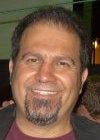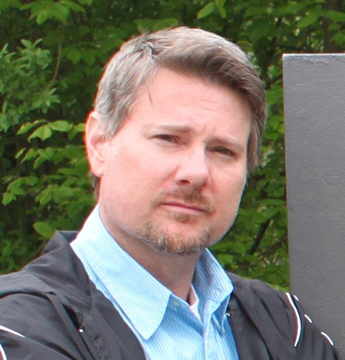 QUESTION: I thought I had forgiven my father who was a drunken tyrant when I was growing up; however, recently my adult daughter wanted to know the details of his abuse. I’ve never tried to keep our children from their grandfather, and have said very little to them about the fear my brothers, our mother and I experienced from a very young age until mom divorced him. Now, in his old age my father has “got religion” and is not the person he used to be. He and my daughter get along and he has said to her he wishes he would have done things differently with his family. We all live in close proximity to one another, and I haven’t spoken to him for years.
QUESTION: I thought I had forgiven my father who was a drunken tyrant when I was growing up; however, recently my adult daughter wanted to know the details of his abuse. I’ve never tried to keep our children from their grandfather, and have said very little to them about the fear my brothers, our mother and I experienced from a very young age until mom divorced him. Now, in his old age my father has “got religion” and is not the person he used to be. He and my daughter get along and he has said to her he wishes he would have done things differently with his family. We all live in close proximity to one another, and I haven’t spoken to him for years.
My daughter doesn’t understand and keeps quoting Jesus’ words, “Forgive 70 times 7.” I really don’t want to relive those fearful memories by telling her what we went through, and I really don’t want to talk to him or see him again. I just want to leave all of that behind. I wish him well. Am I wrong? – Puzzled
Dear Puzzled,
It certainly is understandable to not want to relive your history. Being “puzzled” by how to handle this situation shows your resistance to approach the past and reveals that you are still attached to what happened even though you thought you had forgiven your father.
The energy of our history stays imbedded in our cells and memory until we can release it when it comes up, as it is now. A good exercise for forgiveness is to say, “I bless you, I release you, I let you go.” At first you may not want to say that, but the more you do, your cells, your mind and your heart begin to release your deep feelings and accept and believe what you have been affirming. Then the forgiveness is complete. If your father has done his own personal work, through AA or other 12-step programs, he could truly realize that he made wrong choices and could be a healthier person now. We all have made choices that we later wish we coulda, shoulda, woulda done differently. Even though your daughter feels a need to know and perhaps be instrumental in a healing moment with you and your father, you have the right to make your choice to keep the past behind you. And forgiving our past releases the pain and allows us to live more freely and healthy and be in the present moment. Explain to your daughter that you are handling this situation the best way you can now for your own peace of mind. Tell her that you’d appreciate having your own boundaries and choices respected.
In the meantime, revisit your thoughts of forgiveness, practice the “I bless you, I release you, I let you go” until you truly feel you are released from the past. You might also want to read some books on forgiveness. Three books I would recommend are, “Forgive for Good” by Dr Fred Luskin, “Radical Forgiveness” by Colin Tipping and “Zero Limits” by Joe Vitale. They can give you great insight into various forgiveness processes and how healing can take place for everyone involved, but most importantly, for yourself.
Then who knows? Perhaps in time you will be ready to visit your father or not. That will be your choice.
You have to follow your own heart and do what is necessary for your own peace of mind. If you can practice any of the various forgiveness techniques from these suggested books, or the “I bless you, I release you,
I let you go” technique, you will find that in time, the work is done and you will no longer be puzzled.

Laney Clevenger-White, RScP
Center for Spiritual Living – La Crescenta
laneycl@ca.rr.com
Dear Puzzled,
I don’t think you’ll “relive” those former years when your dad was a poor father. He was caught then in addiction that made him an unfriendly drunk. This issue makes one especially cordial or quite the opposite, and unfortunately you suffered the worst.
My advice? You admit your father is different, so acknowledge that. If he’s changed, then he isn’t the same guy that oppressed your youth. If Christ changed him, then you’ll recognize a monumental difference. If you’ve not accepted Christ yourself, then you’re at a disadvantage that even your father does not experience.
Look, many of us had the dad of which you speak. We mature, and we try to better the parenting that our parent lacked. If dad is truly different, then it’s time to talk. If he’s converted, then he’ll be willing to share with your daughter his mistakes. After all, forgiveness is amazing, and salvation more so. If he’s truly changed, he’s about the best thing you have going in your family. It’s time to talk, and time to do as your daughter suggests – forgive (as Jesus commands). Kids are not stupid, and yours grasps the bigger picture, I’ll bet.
He’s the only father you have. Forgive and move on. The past exists, but its power is only what you allow. Don’t put pain on your kids. Push through, and use it as training. The reality now is that your dad has become your brother. That’s pretty awesome. Embrace it, and use it to illuminate your daughter’s future.
Rev. Bryan Griem
Montrose Community Church (CCCC)
MontroseCommunity@sbcglobal.net
QUESTION: I was appalled and outraged to learn of the young Muslim mother who was beaten to death. Now her five children have no mother. I’m a Christian who believes there are many paths to God in the form of many different religions. What can we as individuals do to dissipate the fear that so many seem to have, not just about Islam but other religions as well? Can extremists be persuaded to think and act differently? What is the mentality that perpetrates these erroneous beliefs? I believe we are all children of God, who loves us all.
– Sad in Montrose
Dear Sad in Montrose,
We are all part of the human family and share your outrage for this tragic act of inhumanity. The murder of 32-year-old mother Shaima Alawadi, an American Muslim of Iraqi heritage, is not only a crime against her family but is an outcome of a dangerous hate that exists in a very small segment of American society. While there is no denying that Islamophobia is present in our communities today, hateful extremism is a national and global phenomenon.
In Oakland, seven college students were killed at a Christian university. In Florida, a black boy wearing a hoodie was killed. In France, Jewish school children were killed. In Norway, 77 civilians were killed. All the innocent were targeted with the fuel of hate, resulting in their senseless deaths. The killer in Norway, Anders Behring Breivik, for example, quoted in his writings 50 times the writings of Robert Spencer, a prolific Islamophobe in America. These tragic incidents are not Muslim problems; they’re American and global problems. Underlying all these very different acts of violence is hate, which is rooted in ignorance and intolerance. Therefore, first we all must be fierce advocates for true knowledge. When we hear bigotry expressed overtly or by innuendo, we have to counter it with courage. As Edmund Burke has said, “All that is required for evil to prevail is for good men to do nothing.” Along with opposing intolerance, our communities need an extra dose of good old fashion neighborly love. Religious interfaith activities and positive social interactions offer our community forums to promote mutual understanding among our diverse groups.
In the specific case of Shaima Alawadi, the investigation is not yet conclusive that this was a crime of hate. Nonetheless, there is probable cause that Islamophobia was the motive. In any case, a wave of bigotry exists in the U.S. towards Islam and Muslims, which may be intensified by the 2012 general elections. The likes of Robert Spencer and several other career Islamohobes are part of a $43-million-strong cottage industry of hate toward Islam as reported by the Center for American Progress in their report titled “Fear, Inc. – The Roots of the Islamophobia Network in America.”
The antidote is to reach out to our local or national Islamic organizations for authentic knowledge about Islam and for community and interfaith fellowship.

Levent Akbarut
Islamic Congregation of La Cañada Flintridge
akbarut@yahoo.com
Dear Sad in Montrose,
I do not believe that extremists can be persuaded to think and act differently on this earth. The very identity of an extremist is that they are zealous and unable to see any other viewpoint than their own and their religious outlook. Extremists by nature are not practicing their religion in the way it was intended but are almost cult-like, discriminatory, and evil in their narrow world view. Murder is not God’s will and any devout follower of a religion is aware of this. Those who truly adhere to and worship their God do not advocate or support these acts nor terrorist acts. So we are dealing with the unreasonable. One of the most difficult things to accept as believers in God is that there are evil, and or unfair, unexplainable acts that happen on this earth that we cannot make sense of. The idea of why do bad things happen to good people is explained by the fact that we live in an earthly, fallen world. We will not experience perfection of complete justice on this earth, nor will we be able to make meaning or sense of senseless acts. But we are promised comfort, love, and one day heaven with God who will perhaps help us to understand the evil we experienced on earth. Or, we may not care at the point we are in His presence.
Prayer and doing our part to fight terrorism is all we can do. But we will never nullify them this side of heaven.

Kimberlie Zakarian, LMFT
Kimberlie Zakarian Therapy, Inc.
kimberlie.zakarian@gmail.com

